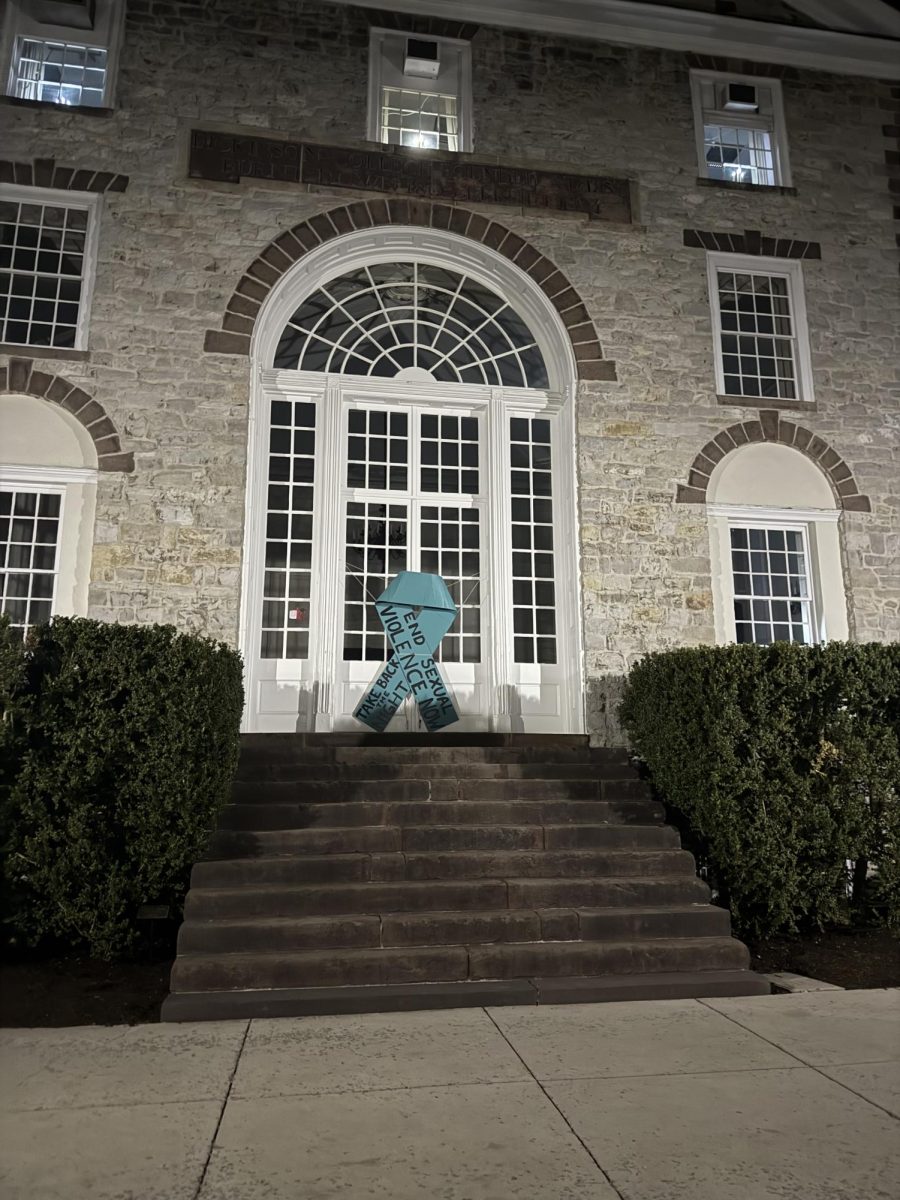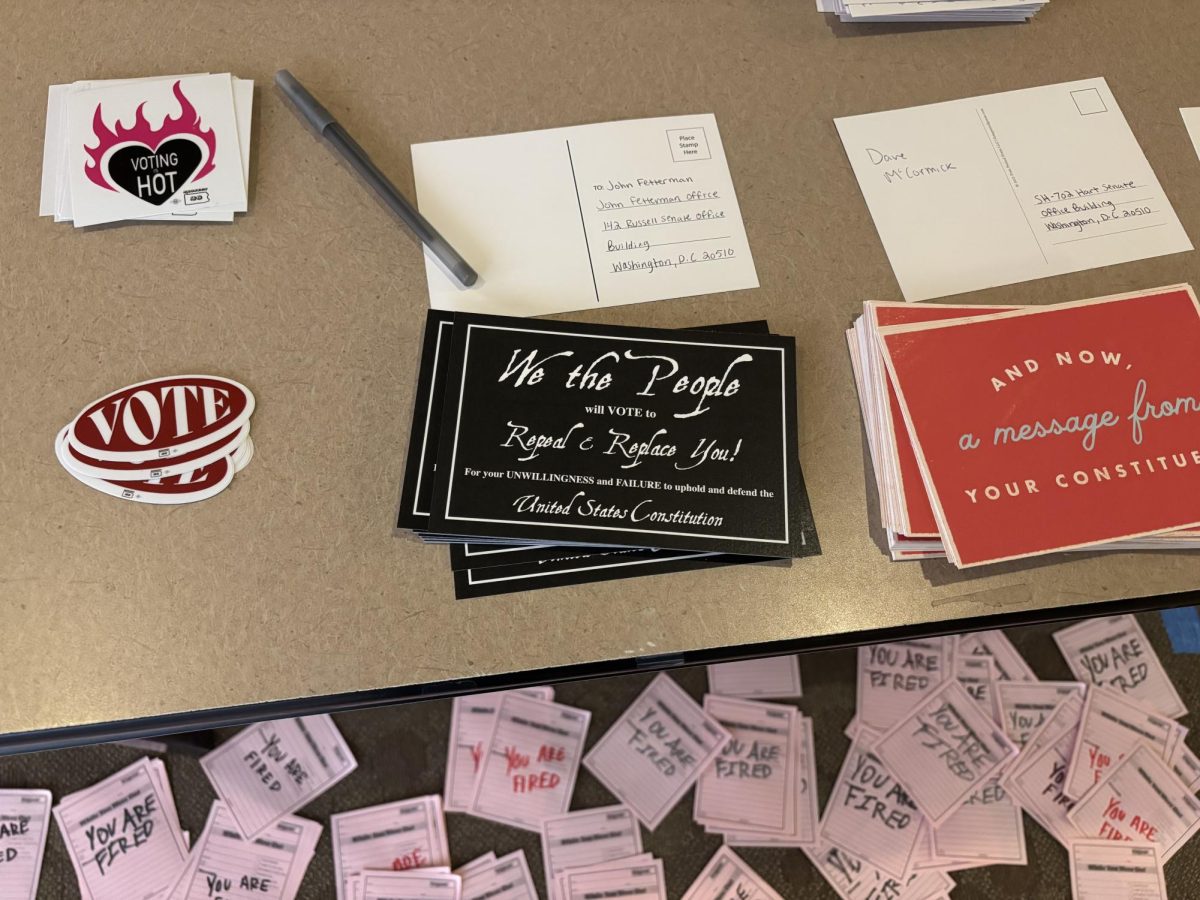Physician and Dickinson College founder Dr. Benjamin Rush is wildly considered by prominent Dickinsonians to be the father of modern psychiatry for authoring the first comprehensive work on mental illness. He formed Dickinson with the intention of providing an education to further revolutionary and democratic ideals. However, Dr. Rush’s work is far from being revolutionary.
Dr. Rush believed that runaway slaves suffered from a mental illness called “Drapetomania” which made slaves desire freedom. On top of that, he also believed that black people suffered from a form of leprosy he termed “Negritude.” Scholars and Dickinsonians like to forgive Rush’s racism by saying he was just a product of the times. He still believed in the ideas behind the American Revolution, they say. Again, Rush actually only favored the wealthy elitism of the slave owners and merchants who co-opted the movement. During the peasant farmer uprising known as Shay’s Rebellion, Dr. Rush claimed that the rebels suffered from “Anarchia,” a form of insanity which made people desire a more democratic society. Clearly, Ben Rush is just like most of the other Founders: rich, ignorant, and out of touch with the experiences of everyday people.
It makes complete sense why the Dickinson administration champions this figure since they are furthering the gross misrepresentation of psychology with their elitist paradigm. The Wellness Center is one of the worst places for students to go for therapy or counseling. Since Freshman year, I have gone to the counseling center off and on for various reasons ranging from drug abuse to relationship problems. Despite being able to talk openly and honestly with a counselor, I never received any concrete help on any of my issues. As I voiced my concerns with others, I noticed many students shared some of my concerns. Students with anxiety disorders told me their counselors failed to recognize their depression. Other times, students who voiced concern over suicidal thoughts and arm cutting were met with the response to “just calm down.”
The lack of support is not the fault of the counselors. They are just as clueless to the emotions of others as any of us are. People starting a psychology career usually go to university counseling centers to gain experience for their résumés. While working for the school, they are still learning the tools of their trade for little pay. Therefore, the Wellness Center’s staff has a high rate of turnover. A counselor may only work for a year or two and thus have a difficult time building lasting relationships with students.
We can’t blame the Wellness Center for their lack of resources. The Counseling portion of the Wellness Center budget dropped approximately $45,000 from 2011 to 2012.[1] The administration evidently felt that those funds could be used elsewhere. To make up for their lack of resources, the Wellness Center focuses on cost effective techniques such as positive psychology, self-care, and medicating. Positive psychology is used by large corporations to keep their employees docile and complacent in an attempt to veil them from their depressingly mundane occupations.
The administration forces the people who counsel us to adopt a treatment of behavior rather than treatment of disease. They focus on curbing socially deviant actions, such as drug use and promiscuity, citing these behaviors as the problem. In reality, these behaviors are not the problem; rather they are symptoms of complex underlying issues. People flee to their vices during times of anxiety. For a young adult, their college years are a key period in shaping identity and finding meaning. Students receive conflicting messages from their peers, professors, and administrators. Dickinson teaches us to “Engage the World” through democracy and sustainability while simultaneously profiting off the energy industry and concentrating power at the top. Dickinson pushes energy efficiency over re-wilding to save money to invest in expansion projects. Dickinson tells us to spread democratic ideals, but the college’s Board of Trustees maintains a gripping influence over the school’s decision-making. In addition, administrators are exempt from the Community Standards and are instead subject to a different process that is kept from the Dickinsonian public. That does not seem very democratic.
This confusion causes many students a great deal of anxiety. They are then convinced that they need to see a counselor who ends up simply prescribing a mind-numbing medication without ever really treating the source of the problem. Students are over-diagnosed for ADD and other attention disorders because they are not given a therapeutic and lasting solution. Dickinson thinks that it can give people pills and expect them to melt back into the campus conformity. Today, this school houses students who feel outcast because they think they have a mental illness. They have been branded as “sick” for simply being anxious. Anxiety, depression, love, and happiness are human emotions, not mental illnesses. By restricting the behaviors of individuals, rather than the social conditions of the campus, Dickinson has declared war on our creativity.








